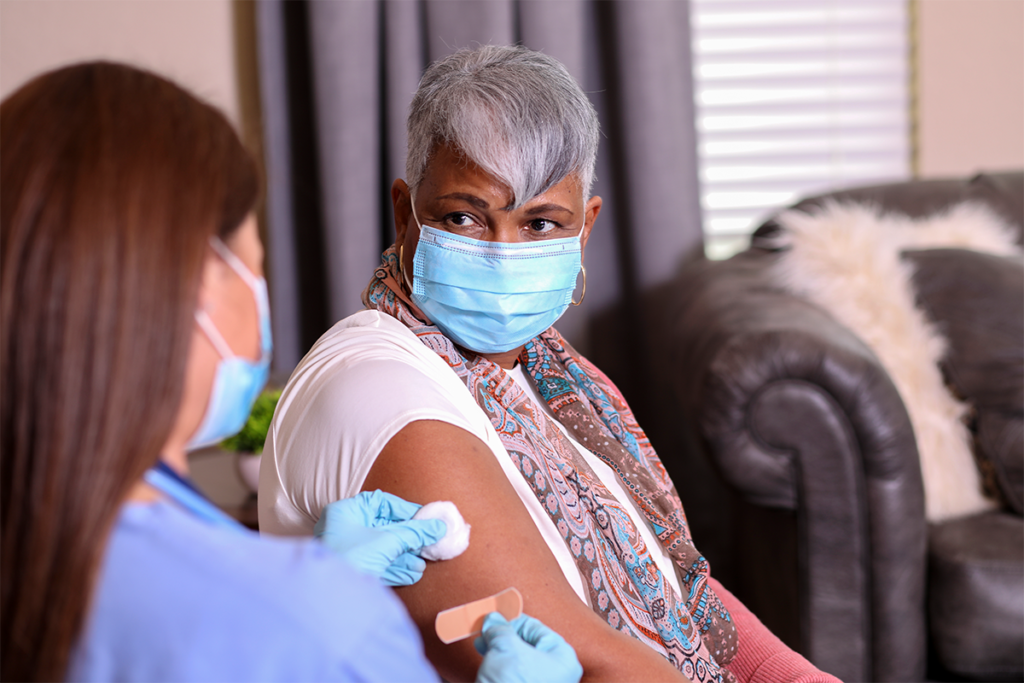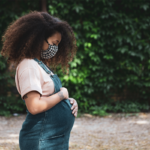With it officially being flu season, I decided to analyze a recent article published by Sandra Crouse Quinn, et al. (2016, gated), which examines racial influences on flu vaccine attitudes and behavior. I find this study to be extremely relevant considering public health officials expect a COVID-19 vaccine sometime in 2021. While this article focuses specifically on attitudes revolving around the flu vaccine, it will be interesting to see whether these same attitudes and behaviors are prevalent when it comes time for the public to get their COVID-19 vaccinations. For this post, I will describe the study’s methods, summarize the main findings and share my thoughts.
Study methods
By collaborating with Growth from Knowledge, Quinn et al. conducted an online, nationally representative survey that collected data from 819 Black and 838 white adults in the United States. The team used an address-based sampling methodology. To develop the survey, Quinn et al. conducted 28 semi-structured interviews and then 16 cognitive interviews to test and clarify its content further.
The researchers sought to answer three different research questions: 1) Are there differences between Blacks and whites regarding the flu vaccine in terms of vaccine knowledge and attitudes including trust, risk perception, vaccine beliefs, vaccine hesitancy and confidence, and social norms? 2) Do racial factors associated with being Black or white in the United States relate to vaccine knowledge and attitudes including trust, risk perception, vaccine beliefs, vaccine hesitancy and confidence, and social norms? 3) Do racial factors relate to vaccine behaviors, and does vaccine knowledge and attitudes including trust, risk perception, vaccine beliefs, vaccine hesitancy and confidence, and social norms, mediate that relation? To answer each of their research questions, the researchers used a different type of analysis.
To answer the first research question, Quinn et al. ran simple linear regression tests to compare sample-weighted means for both Blacks and whites. In these tests, they used race as the explanatory variable. To answer the second research question, the researchers conducted measured variable path analysis within each race group using Mplus software. Using this software allowed the team to separately “assess the direct effects of the racial factor variables on vaccine attitudes and knowledge” (p.1169). Lastly, Quinn et al. used a single path method to determine both direct and indirect effects on vaccine attitudes and knowledge in order to answer the third research question.
The findings
For the first research question, Quinn et al. find that whites had higher levels of trust in both the flu vaccine (a mean of 3.18 for whites vs. 2.89 for Blacks on a five-point scale) and the vaccination process in general (a mean of 3.23 vs. 3.00 on a five-point scale). Quinn et al. gathered these results using a questionnaire to form an index of a specific variable. To determine if a value was statistically significant or not, the researchers used Cohen’s estimated standardized effect.
Lastly, for their third research question, Quinn et al. conclude that both the direct and indirect effects were not significant for both racial groups. There were, however, small exceptions for both races. For example, in Blacks, the effect of racial fairness mediated trust in the actual flu vaccine and the effect of frequency of discrimination mediated perceived risk of a vaccine. For whites, racial fairness mediated confidence in the flu vaccine.
My thoughts
In the last section of their study, Quinn et al. briefly talk about how and why the team decided to explore topics such as racial fairness and racial consciousness. While conducting their initial surveys, the researchers said that the white respondents tended to answer from what the researchers saw as a place of white privilege. White respondents were far less likely to question the vaccination process or even their interactions with health care providers. For Black respondents, however, there was a much higher level of skepticism and hesitancy regarding interactions with health care providers and the vaccination process.
I wondered to myself if the reason for such hesitancy among the Black community was due to the Tuskegee Syphilis Study. To no surprise, according to Quinn et al., among those Blacks who voiced a level of skepticism, they also referenced the Tuskegee “experiment”. For those of you who may not know about the Tuskegee Syphilis Study, it began in 1932 and examined the effects of untreated syphilis in the Black community. What made the study so unethical was the tactics used. One such tactic deprived study participants of the medicine they needed in order to produce certain results. This “study” concluded in 1972.
To conclude, I do have two questions that I wish Quinn et al. addressed in their study – or that future vaccine research can answer. First, for those survey respondents that said they have very little trust in a flu vaccine, is there a way to improve this level of trust? This is particularly important knowing a COVID-19 vaccine is on the horizon. Second, due to the large number of respondents saying that they are not familiar with the actual risks of flu, whose responsibility is it to educate these individuals? Should there be more government intervention when it comes to educating the public regarding risks of potentially deadly diseases? Overall, I found the Quinn et al. study extremely enlightening and would love to see how responses have changed since it was published in 2016.
Note: The published study uses the term “African American”, but we use “Black” to mirror other posts and honor author preference.
Photo credit: fstop123/Getty


